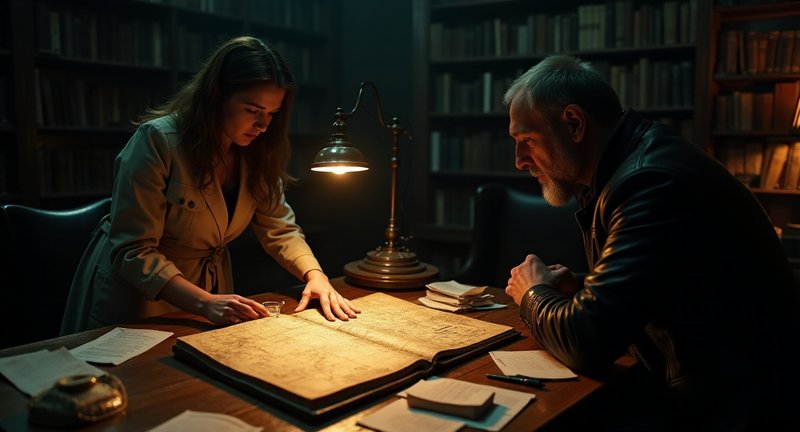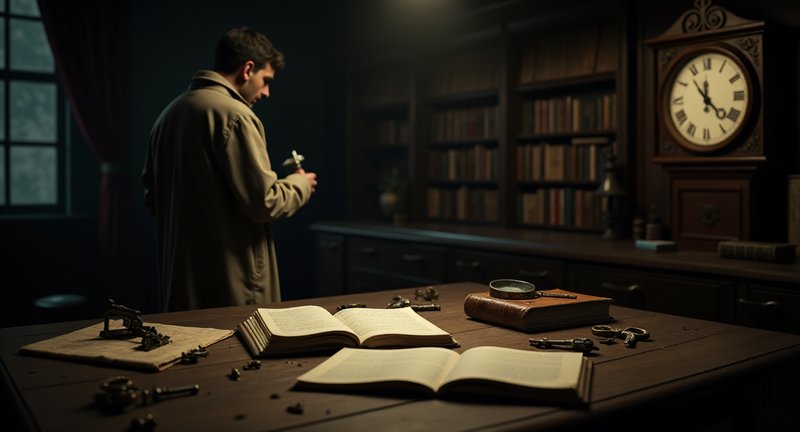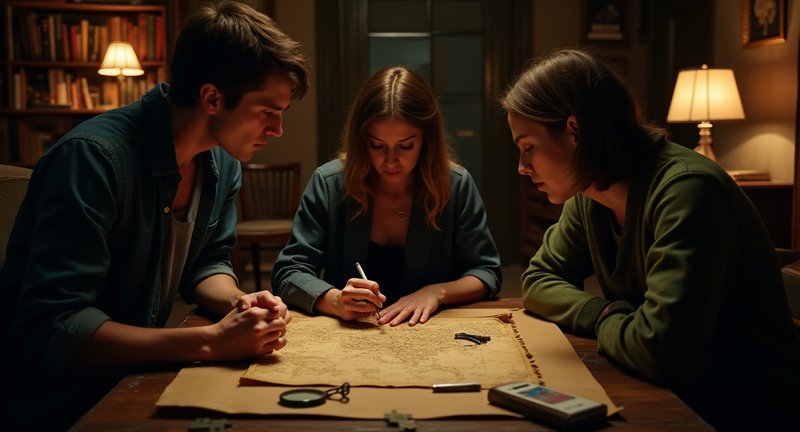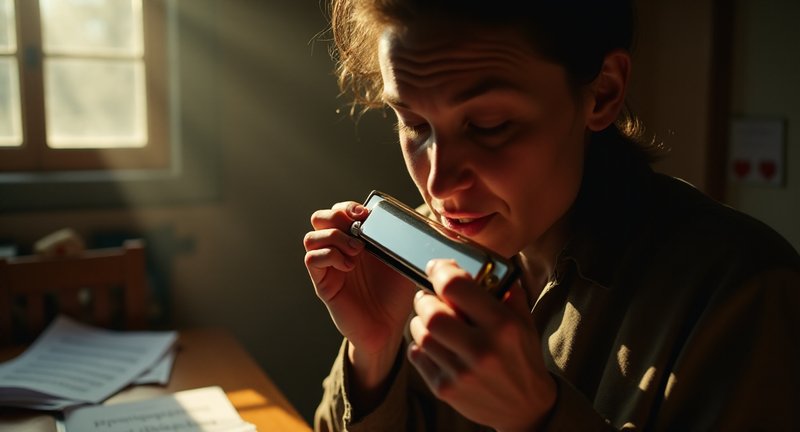Foreword to Solve the Mystery Game
As I embarked on my journey into the world of mystery games, I found myself drawn into a labyrinth of intrigue and excitement. The concept of “Solve the Mystery Game” is more than just piecing together clues; it’s an experience that ignites your imagination and challenges your wit. It’s about immersing yourself in an elaborate narrative where every detail matters and every choice can alter the outcome.

Here’s why diving into a mystery game can be a thrilling adventure:
- Engagement: These games demand your full attention, immersing you in a storyline where you become the protagonist. It’s your chance to embody a detective, unraveling layers of secrets and surprises.
- Critical Thinking: You’ll need to hone your analytical skills. Connecting dots that seem unrelated at first can lead to unexpected revelations. Each clue is a stepping stone towards unveiling the truth.
- Collaboration: Whether you’re playing with friends or online communities, mystery games encourage teamwork. There’s nothing quite like sharing those “aha!” moments with others.
- Creativity: The narratives in mystery games often push the boundaries of conventional storytelling. You might find yourself in scenarios that require unconventional solutions, fostering your creative thinking.
From my experience, solving the intricate puzzles within these games is not just about reaching the end but savoring the journey. The thrill of piecing together a story while racing against time is what keeps players coming back for more. So, if you’re ready for an adventure filled with twists and turns, grab your magnifying glass and prepare to solve the mystery!
The Appeal of Solve the Mystery Game
Have you ever found yourself knee-deep in a puzzle that felt like a portal to another dimension? That’s the magic of mystery-solving adventures. They whisk you away, wrapping you in a cloak of intrigue and challenge.
As someone who thrives on the thrill of unraveling enigma, I can say there’s something exhilarating about piecing together clues. It’s not just about finding the answer; it’s about the journey navigating twists and turns while feeling the adrenaline rush with each revelation.
Picture this: you’re surrounded by friends, each one a key player in this captivating quest. Laughter and friendly banter float in the air, but beneath that, there’s a current of excitement. You’re all detectives for the day, and every clue brings you one step closer to triumph.

I recall a particular escapade where we were led through a series of cleverly crafted riddles. Each twist was a delight, and the collective “aha!” moment when we cracked the code was electric. It wasn’t just a game; it was a memory in the making.
The beauty of these adventures lies in their ability to engage your mind. They encourage critical thinking and foster creativity in a way that’s often hard to find in everyday life. Every solved mystery feels like a small victory, reminding us that we can conquer even the most perplexing challenges.
So, if you’re seeking a refreshing escape, gather your fellow adventurers. Dive into a world where curiosity reigns and every clue sparks a thrill. You might just discover that the real treasure lies in the stories you create along the way.
Understanding the Basics of Mystery Games
Ah, mystery games the tantalizing dance of wits and intrigue! If you’re anything like me, the mere mention of these games sends a shiver of excitement down your spine. The thrill of piecing together clues and unraveling enigmas is an adventure unlike any other.
At their core, mystery games are all about observation and deduction. Imagine stepping into a world where every detail could be a vital hint. The smallest clue may lead to the most profound revelation, and that’s where the magic happens.
One of my favorite aspects of these games is the array of settings they offer. From dimly lit mansions to bustling city streets, each location adds its own flavor to the narrative. It’s as if you are plucked from your daily routine and thrust into an exhilarating story where you’re the protagonist.
The beauty of engaging in these games is the camaraderie it fosters. Whether playing with friends or family, the shared experience of unraveling a plot thread binds players together. Those collective “aha!” moments are pure gold, transforming a simple gathering into a memorable adventure.
Mystery games also teach us the art of patience and critical thinking. They encourage us to slow down and scrutinize our surroundings, honing our ability to notice details that might otherwise slip by unnoticed. Trust me; this skill comes in handy not just in games but in life itself.
So, grab a magnifying glass, gather your companions, and dive headfirst into the world of mystery games. Each turn of the page or twist of the plot is an invitation to explore the unknown. Are you ready to embark on this thrilling journey?
The Importance of Observation Skills
In the world of hobbies, one skill reigns supreme: observation. It’s the secret ingredient that transforms the mundane into the extraordinary, allowing us to truly engage with our passions. Through my own experiences, I’ve come to appreciate how honing my observation skills has enriched my hobbies, from birdwatching to photography.
Here are a few reasons why sharpening your observation skills is invaluable:
-
Enhanced Detail Recognition: Whether it’s spotting a rare bird or capturing the perfect photograph, the ability to notice subtleties can elevate your work. Colors, shapes, and patterns suddenly leap to life when you train your eye.
-
Deepened Understanding: Observing closely helps you understand the nuances of your hobby. For example, when I first started painting, I realized that the way light plays on surfaces profoundly affects color choice and shading.
-
Creative Inspiration: A keen eye can lead to unexpected sources of inspiration. A walk through a local park can reveal striking compositions just waiting to be photographed or painted.
-
Problem-Solving Abilities: Often, the answers to challenges in our hobbies lie in the details. By observing carefully, we can identify patterns and solutions we might have otherwise overlooked.
-
Connection with Nature and People: Observing isn’t just about what’s around us; it’s also about connecting. By noticing the small interactions in our environment, we become more attuned to the rhythms of life, enriching our experiences.
So, as you engage in your hobbies, take a moment to pause and observe. The world is teeming with details waiting to be uncovered, and your observation skills are the key to unlocking a richer, more rewarding experience.
Building a Strategic Mindset
Building a strategic mindset is like piecing together a grand jigsaw puzzle each moment of insight and deduction adds to a larger picture. In my own journey through various hobbies, particularly those involving strategy and critical thinking, I’ve learned that cultivating this mindset isn’t just beneficial; it’s essential.
When I engage in a strategic activity, I like to approach it with a plan. Here are a few nuggets of wisdom I’ve gathered along the way:
-
Anticipate Moves: Just as in chess, where each piece has a unique role, consider the potential outcomes of your decisions. Always think two or three steps ahead, like a grandmaster plotting their victory.
-
Gather Information: Knowledge is power. Whether it’s through research, observation, or talking to seasoned players, absorbing as much information as possible gives you the upper hand.
-
Practice Flexibility: A rigid strategy is a recipe for disaster. Be prepared to pivot and adapt your approach as new information surfaces. Sometimes, the unexpected can lead to the most thrilling moments.
-
Reflect on Experiences: After each adventure, I take time to reflect on what worked and what didn’t. This self-analysis helps refine my strategy for next time.
-
Embrace Collaboration: Sometimes, working with others can uncover new strategies and perspectives. Share your ideas and be open to feedback; it can lead to breakthrough moments.
Remember, each time you approach a challenge, think of it as a chance to hone your strategic prowess. So, dive into your next venture with a clear mind and an eager heart!
Essential Tools for Game Success
When diving into the captivating world of mystery games, having the right tools at your disposal can elevate your experience from ordinary to extraordinary. Over the years, I’ve discovered that these essential elements not only enhance gameplay but also enrich the thrill of unraveling complex narratives.
:
-
Notepad and Pen:
- A classic duo that never goes out of style. Jotting down clues, sketches of maps, or character traits can spark connections you might otherwise overlook. Trust me, there’s nothing more satisfying than flipping back through your notes and piecing together a puzzle you thought was lost.
-
Puzzle-Solving Mindset:
- Approach the game like a detective on a quest. Keeping an open mind allows for creative thinking and unexpected solutions. Don’t shy away from wild ideas they might just lead you down the right path.
-
Digital Tools:
- Utilize apps or software designed for mystery enthusiasts. Whether it’s an inventory tracker or a clue organizer, these can streamline your thoughts and keep you focused. I often rely on digital boards to visualize my deductions.
-
Collaboration Skills:
- If you’re not flying solo, teamwork is key. Engaging in lively discussions with fellow players often leads to “Aha!” moments that you might not achieve alone. Remember, many minds make light work!
-
Thematic Atmosphere:
- Setting the mood can dramatically affect your immersion. Light some candles, play suspenseful background music, or even dress up according to the game’s theme. This sensory engagement amplifies the experience and pulls you deeper into the story.
Embracing these tools will not only sharpen your skills but also make your gaming experience far more enjoyable. So gear up, gather your materials, and let the adventure unfold!
Analyzing Clues Effectively
With a focus on unearthing the secrets within any puzzle, I’ve learned that analyzing clues effectively is an art form in itself. It’s not just about finding answers; it’s about immersing yourself in the narrative and engaging with the details. Let me share some insights from my own escapades into this thrilling world of deduction.
Techniques for Analyzing Clues
-
Observation is Key
The first step is to sharpen your senses. Look for:- Oddities that don’t fit the narrative.
- Patterns that may not initially appear significant.
- Connections between seemingly unrelated items.
-
Categorize Your Findings
Creating categories can help to organize thoughts:- Physical Clues: Items or artifacts left behind.
- Verbal Clues: Statements made by characters or hints from the environment.
- Emotional Cues: How different elements evoke feelings these can be subtle yet telling.
-
Engage Your Imagination
I often find that letting my mind wander can lead to breakthroughs. Picture yourself in the scenario, exploring possible motives and outcomes. Ask questions like:- What if the roles were reversed?
- How would I react in this situation?
-
Collaboration Enhances Insight
There’s magic in sharing ideas. Discussing with fellow enthusiasts often uncovers angles I hadn’t considered. Try brainstorming sessions or group discussions where everyone shares their perspectives. -
Document Everything
Keeping a journal of clues can be invaluable. Jot down thoughts, sketches, and feelings associated with each clue. This creates a treasure trove of information that can be referenced later.
By embracing these strategies, you’ll enhance your ability to dissect clues and deepen your experience. After all, the journey is just as thrilling as the destination.
Breaking Down Solve the Mystery Game
When diving into the world of mystery-solving games, you’re entering a delightful labyrinth of clues, puzzles, and brain teasers. Picture this: you and a group of friends, armed with nothing but your wits and a sense of adventure, locked in a room filled with enigmatic artifacts and cryptic messages. It’s a race against time, and the thrill of unraveling the secrets is absolutely electrifying!

Here’s a glimpse of what makes these games so captivating:
-
Immersive Storytelling: Each game transports you into a different narrative. Whether you’re unearthing a forgotten treasure or unmasking a clever villain, the plot twists keep your heart racing.
-
Team Dynamics: Solving mysteries is a collective endeavor. It’s fascinating to see how different personalities contribute some may excel at deciphering codes while others have a knack for observation.
-
Critical Thinking: The challenges you encounter encourage you to think outside the box. You’ll find yourself piecing together clues in unexpected ways, like a puzzle coming together as if by magic.
-
Time Pressure: The ticking clock adds a delightful tension. Can you piece together the enigma before the final minute slips away? The adrenaline rush is unparalleled!
-
Sense of Accomplishment: There’s nothing quite like that moment of revelation when everything clicks into place. It’s a euphoric rush, leaving you craving more mysteries to solve.
As you embark on your own adventures in this genre, I encourage you to embrace the whimsy and wonder of these experiences. The memories made during these intense escapades with friends are often some of the best and you might just discover a hidden talent for sleuthing along the way!
Collaborating with Team Members
Collaborating with team members in any hobby can elevate the experience from mundane to extraordinary. I vividly remember the first time I gathered a group of friends for an adventure where our mission was to “Solve the Mystery Game.” The excitement crackled in the air like static electricity.
As we pieced together clues, each moment felt charged with potential. Conversations flowed effortlessly, revealing hidden talents and strengths among us. Someone had a knack for puzzle-solving, while another could think creatively under pressure. It was amazing to witness how collaboration transformed our approach.
We shared laughs over our missteps and celebrated the triumphs that came from working together. I realized that the best part of solving a mystery wasn’t merely the resolution; it was the journey alongside my teammates. Each interaction deepened our friendships, making the experience all the more memorable.
In these moments, I discovered the power of diverse perspectives. When we hit a snag, it was our varied insights that propelled us forward. We learned to lean on each other, celebrating both our strengths and weaknesses.
Remember, it’s not just about cracking the case; it’s about fostering connections that last long after the game ends. Collaborating with others transforms hobbies into shared adventures, creating bonds that enrich our lives. So, the next time you embark on a project, gather your team and embrace the magic of collaboration. You’ll be amazed at what you can achieve together.
Utilizing Technology in Mystery Solving
In the age of digital wonder, utilizing technology in mystery-solving has become an exhilarating adventure. Picture yourself diving into a virtual realm where clues pop up like popcorn, and every click reveals another layer of the enigma.
I’ve often found myself lost in a labyrinth of digital hints, where each piece of information unfolds like a story waiting to be told. Using online platforms, you can connect with fellow enthusiasts, sharing insights that can turn the tide in your quest for the elusive truth.
Mobile apps have transformed the experience into an interactive journey. Imagine receiving notifications that guide you to hidden treasures in your neighborhood or beyond, making every stroll feel like a scene from a cinematic thriller.
Virtual reality is another gem that can catapult you into the heart of the mystery. It’s as if you’ve been transported to an alternate universe, where every sound, every shadow, pulls you deeper into the narrative. The sensation is palpable; you can almost feel the suspense wrapping around you.
Using social media to gather opinions and theories adds another exciting twist. The diverse perspectives of fellow sleuths can ignite inspiration and lead you down paths you may have never considered. Who knew that the internet could be a treasure trove of ideas and camaraderie?
So, as you embark on your next mystery, consider the plethora of tools at your disposal. Technology doesn’t just aid in uncovering secrets; it enhances the experience, making it a thrilling context of intrigue and discovery.
Common Mistakes to Avoid
Concerning diving into the captivating world of mystery games, it’s all too easy to trip over some common pitfalls. Having wandered this path myself, I can share some insights to steer you clear of these obstacles. Here are a few mistakes I’ve encountered and learned from:
-
Underestimating Clues:
- Every detail matters. I once brushed off a seemingly trivial clue, only to realize it was the key to unlocking a critical piece of the puzzle. Treat every hint like a hidden treasure.
-
Rushing the Process:
- It’s tempting to sprint through the game, eager for the reveal. However, savoring the experience is where the magic lies. Slow down and appreciate the unfolding narrative.
-
Neglecting Team Dynamics:
- If you’re playing with a group, collaboration is crucial. I’ve witnessed teams crumble when individuals try to dominate discussions. Listen, engage, and share ideas. Everyone brings something unique to the table.
-
Ignoring the Atmosphere:
- Mystery games thrive on atmosphere. I learned to embrace the mood dim lights, soft music, and a dash of suspense can elevate the experience. Don’t let the ambiance fade into the background; let it envelop you.
-
Failing to Reflect:
- After the game, take a moment to ponder. What worked? What didn’t? Each session is a learning opportunity. Reflecting on your experience can sharpen your skills for the next adventure.
So, as you embark on your next journey through the enigmatic twists and turns of mystery games, keep these insights in mind. Avoiding these traps will enrich your experience and deepen your appreciation for the craft.
Tips for Time Management
Time management is like a dance, where you must find the rhythm that works for you. In my experience, the key is to carve out dedicated slots for your hobbies amidst the chaotic waltz of daily life.
One strategy that has served me well is the art of prioritization. Picture a vibrant context of interests; each thread represents a different hobby. By identifying which threads are most vibrant for you today, you can focus your energy where it counts.
Next, don’t underestimate the power of micro-sessions. Even short bursts of creative energy can yield unexpected joys. I’ve found that spending just 15 minutes on a hobby can often spark inspiration for longer sessions later.
Another trick I’ve learned is to embrace flexibility. Life has a way of throwing curveballs that can derail even the best-laid plans. When I encounter a scheduling hiccup, I’ve learned to adapt and find alternative times to indulge in my passions.
Creating a dedicated space for your hobbies can work wonders, too. It’s like having a little corner of magic in your home. Whenever I enter my hobby nook, I feel a wave of inspiration wash over me, ready to dive into my latest adventure.
Also, remember to celebrate your progress, no matter how small. Each moment spent enjoying your hobbies is a victory. So, raise a metaphorical glass to your creative journey, and keep that spark alive!
Staying Focused Under Pressure
When it comes to staying focused under pressure, I can share a few nuggets of wisdom gleaned from countless hours spent unraveling intricate puzzles and engaging in high-stakes competitions. The key lies in cultivating a mindset that thrives amid the chaos. Here’s how I keep my cool when the stakes are high:
-
Embrace the Chaos: Accept that pressure is part of the experience. I find that recognizing this makes it easier to stay grounded and focus on the task at hand.
-
Break It Down: When faced with a complex challenge, I dissect it into manageable chunks. This way, I tackle one piece at a time rather than feeling overwhelmed by the whole picture.
-
Practice Mindfulness: I often employ mindfulness techniques to center myself. Deep breathing, for instance, can calm those racing thoughts and refocus my mind.
-
Stay Positive: A positive mindset is a powerful ally. I remind myself that mistakes are just stepping stones to success. Each misstep is an opportunity for growth and learning.
-
Visualize Success: Before diving into a challenge, I take a moment to visualize a successful outcome. This mental rehearsal sets a confident tone for my performance.
In my experience, mastering the art of focus under pressure transforms not only how I tackle hobbies but also how I approach life. When distractions loom large, a steady mind can illuminate the path to achievement. So, the next time you find yourself in a pressure cooker situation, remember these strategies. They might just be the secret ingredients to your success.
Enhancing Communication Skills
Enhancing communication skills is like uncovering layers of an intriguing onion. Each layer reveals something new about how we express ourselves and connect with others.
Through my experiences, I’ve discovered that engaging in certain activities can sharpen these skills. For instance, immersing yourself in interactive storytelling or team challenges brings a whole new dimension to dialogue.
Imagine sitting around a table, brainstorming ideas with friends. The synergy in those moments is electric; everyone brings a unique perspective, and suddenly, you’re not just conversing you’re creating a context of thoughts woven together.
In these scenarios, I’ve learned the art of active listening. It’s not just about waiting for my turn to speak; it’s about truly absorbing what others say, finding the golden threads that bind our ideas.
Moreover, stepping out of my comfort zone by participating in group activities has been transformative. Each interaction is a chance to practice clarity in speech and the subtlety of non-verbal cues.
Don’t underestimate the power of feedback. Sharing thoughts and receiving constructive criticism can feel like a tightrope walk, but it ultimately strengthens your communication foundation.
As a matter of fact, remember that communication is an ongoing journey. The more we practice, the more skilled we become at navigating conversations. It’s about exploring the art of connection, one layer at a time.
How to Interpret Misdirection
Misdirection is an art form that weaves its way through the fabric of any mystery. In my journey, I’ve discovered that interpreting it often feels like deciphering a cryptic code hidden in plain sight.
When faced with a seemingly obvious clue, I’ve learned to pause and consider the unexpected. Sometimes, the truth is cleverly tucked away, like a secret in a magician’s pocket, waiting for a keen observer to unveil it.
Have you ever noticed how a red herring can lead you down a rabbit hole? It’s crucial to remain vigilant and question everything, even those enticing breadcrumbs that seem to guide you.
Reflecting on my own escapades, I often found myself retracing steps to understand the twist. By revisiting earlier clues, I unearthed connections that were initially obscured, revealing the bigger picture.
Trust your instincts, but don’t let them blind you. Sometimes, the path less traveled holds the key to unraveling the tangled web of misdirection.
Engage your senses; they are your allies in this delightful challenge. Listen closely to the whispers of the narrative and observe the subtle shifts in dynamics, as they often signal a deeper meaning.
In the end, the thrill of navigating misdirection is what makes each adventure memorable. It’s not just about piecing together clues; it’s about enjoying the journey and the surprises it brings.
Need Help? Here’s More
How do you solve a mystery game?
Solving a mystery game typically involves careful observation, logical deduction, and critical thinking. Players must pay attention to clues, character interactions, and plot details that can help them piece together the story. Often, it’s beneficial to take notes on important information, as well as to discuss theories with other players. Collaborating can provide fresh insights and help uncover solutions that may not be apparent when working alone. Also, patience and persistence are key, as mysteries often require time to unravel.
What is the game where you solve murders?
The game where players solve murders is commonly referred to as a murder mystery game. These games can take various forms, including board games, video games, and party games. Participants typically assume the roles of characters within a story that revolves around a crime, often a murder. Players must gather evidence, interrogate suspects, and deduce who the perpetrator is based on clues provided throughout the gameplay. Popular examples include “Clue,” “Mafia,” and immersive theater experiences that offer a unique twist on the genre.
How to solve a mystery case?
To solve a mystery case, start by gathering all available evidence and information related to the case. Analyze the details meticulously, looking for patterns or inconsistencies. Developing a timeline can help clarify events and connections. Conduct interviews with relevant individuals to gather personal accounts and insights. Additionally, employing deductive reasoning can aid in eliminating unlikely suspects or scenarios. Throughout the process, remain open-minded and willing to reassess your conclusions based on new information as it arises.
What are the rules for the mystery word game?
The rules for a mystery word game can vary depending on the specific game format, but generally, players are tasked with guessing a hidden word or phrase based on a series of clues or letters provided. Players may take turns making guesses, with each incorrect guess potentially leading to penalties, such as losing points or limited attempts. Some variations involve categories or themes that can help narrow down guesses. Collaboration and creative thinking often enhance the experience, making it a fun and engaging activity for participants.
What is the biggest solved mystery?
One of the biggest solved mysteries in history is the identity of Jack the Ripper, a serial killer who terrorized London in the late 1800s. For over a century, the true identity of the killer remained a subject of speculation and debate. However, recent research and analysis of forensic evidence have led some experts to believe that Aaron Kosminski, a Polish immigrant, may have been the infamous Ripper. While not universally accepted, this identification has provided closure to one of history’s most intriguing unsolved cases.
What is the problem-solving game?
A problem-solving game is designed to engage players in overcoming challenges through critical thinking and strategic reasoning. These games often require participants to analyze situations, evaluate options, and devise effective solutions to progress. Common examples include escape room games, where players must work together to solve puzzles and riddles to “escape” within a time limit. Other formats may include board games or video games that challenge players to think creatively and logically to achieve specific goals or complete missions.
How does a detective solve a mystery?
A detective solves a mystery by employing a systematic approach to investigation. This involves collecting evidence at the crime scene, interviewing witnesses, and analyzing forensic data. Detectives often follow a methodical process of eliminating suspects, forming theories, and testing those theories against the available evidence. They rely on intuition, experience, and keen observational skills to connect seemingly unrelated facts. Collaboration with other law enforcement professionals and specialists in various fields can further enhance their ability to solve complex cases effectively.
How do you solve cryptic puzzles?
Solving cryptic puzzles requires a combination of lateral thinking and familiarity with specific clues and wordplay. Start by breaking down the clues into parts, identifying any anagrams, homophones, or double meanings that may be present. Look for indicators that suggest how to approach the puzzle, such as definitions or synonyms. Practice is essential, as exposure to different puzzle types helps to develop the necessary skills. Collaborating with others can also provide new perspectives and solutions to challenging clues, making the experience more enjoyable.
How do you solve treasure hunt clues?
Solving treasure hunt clues often involves deciphering riddles, interpreting symbols, and following a logical progression from one clue to the next. Begin by carefully reading each clue, identifying key terms that may hint at locations or actions. It’s crucial to think creatively and consider multiple interpretations. Sometimes, teamwork can enhance the problem-solving process, as different perspectives can lead to quicker resolutions. As you solve each clue, keep track of your findings and remain flexible in your thinking to adapt to new challenges that arise.
What is the best mystery puzzle?
The best mystery puzzle can vary widely depending on personal preferences, but many enthusiasts recommend games like ‘Sherlock Holmes: Consulting Detective’ for its immersive narrative and complex scenarios. This game challenges players to act as detectives, analyzing clues and interviewing characters to solve intricate cases. Another popular option is “Mystery Mansion,” which combines elements of exploration and deduction. Also, the best mystery puzzle is one that captivates players with engaging storytelling, compelling characters, and thought-provoking challenges that keep them guessing until the end.
How do you play the killer game?
Playing the killer game typically involves participants taking on roles in a fictional murder mystery scenario. One player is secretly designated as the ‘killer,’ while others are assigned roles as investigators or innocent bystanders. Throughout the game, players interact and share clues, attempting to deduce the identity of the killer without being eliminated themselves. The game often includes rounds where players can vote to eliminate suspects or gather information. Effective communication, strategy, and social skills play significant roles in navigating the suspenseful and thrilling dynamics of the game.











Your analogy of building a strategic mindset as a jigsaw puzzle is spot on! I’ve found that anticipating moves in games like chess has truly sharpened my overall decision-making skills, not just in gaming but in everyday life as well. I love your point about flexibility sometimes the best strategies come from adapting to the unexpected. Reflecting on past experiences is another great tip; it’s all about learning and growing, right? I can’t wait to apply your wisdom to my next game night. Cheers to strategic thinking!
I absolutely resonate with your insights about the power of observation! It’s amazing how simply slowing down and really looking can transform our experiences in hobbies like birdwatching or painting. I remember my first photography class, where I learned to notice the play of light on subjects. It opened my eyes to a whole new world! I love how you emphasized connecting with nature through observation; it really deepens our appreciation for the environment and fuels our creativity. Thanks for sharing such thoughtful perspectives!
I love how you captured the essence of mystery games! They really do have this magical ability to pull us into their world of intrigue and deduction. The idea that every small detail could be a crucial clue is so thrilling! Plus, playing with friends and experiencing those collective “aha!” moments really elevates the fun. I’ve had some of the best times doing exactly that, where the shared joy of solving a mystery feels like a mini-celebration. And you’re spot on about the lessons these games teach us; honing our observational skills can be so helpful in everyday life. It’s like training our brains to notice the finer details. Thanks for reminding us why these games are such a fantastic way to spend time with loved ones while also exercising our minds!
Oh, I can relate to the thrill you described! Mystery games truly have a unique way of transporting us to another dimension, don’t they? The adrenaline rush while piecing together clues is such an exhilarating experience. I love how you painted the picture of friends gathered together, each contributing their insights. Those moments of laughter combined with the seriousness of cracking the case are simply unforgettable! I can recall one time where we spent hours solving riddles, and the joy we felt when everything clicked was beyond words. You’re right; it’s not just a game; it’s about creating memories that last. I also appreciate how you pointed out that these games nurture creativity and critical thinking two skills that are invaluable in life. It’s like a perfect blend of fun and mental gymnastics! I can’t wait to dive into another mystery game with my crew. Thank you for inspiring us to keep exploring these captivating adventures!
I completely resonate with your thoughts on mystery games! It’s incredible how these adventures draw you into their narrative world, where every little detail can lead to a major breakthrough. I remember my first mystery game it felt like being inside a live detective novel! The rush of piecing together clues alongside friends is just unmatched. We often found ourselves laughing and brainstorming in the most creative ways, which made the experience even richer. And you’re absolutely right about the critical thinking aspect; it’s like a mental workout! You have to be alert, think outside the box, and connect seemingly random dots. Plus, the collaboration aspect is a huge bonus. Those shared “aha!” moments are pure magic, right? It’s always a highlight when everyone is on the same page, celebrating the thrill of the chase together. If anyone hasn’t tried a mystery game yet, they’re truly missing out on a wonderful blend of excitement, camaraderie, and creativity. Than